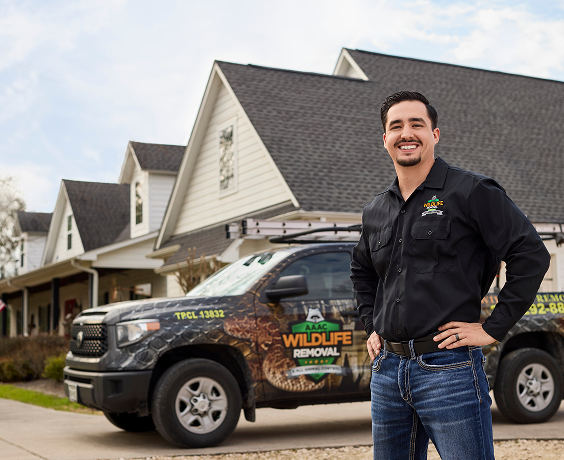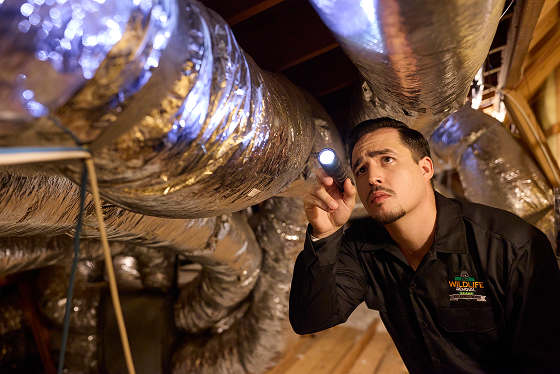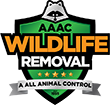Is Pest Control in High Demand?
Yes, pest control is in high demand due to growing urban populations, climate changes, and increased health awareness. With both residential and commercial sectors relying on regular pest management, the industry continues to expand and offer stable, long-term opportunities.

Pest control might not be the flashiest industry, but it’s one of the most consistently in-demand services out there. From sneaky rodents in city apartments to termite invasions in suburban homes, pest issues are a persistent part of daily life, and they’re not going away anytime soon.
As populations grow, climates shift, and people place more value on hygiene and home safety, the need for professional pest control has only intensified.
This surge in demand isn’t just a trend, it’s a reflection of how essential pest management has become for both homeowners and businesses. In this guide, we’ll explore why pest control services are more relevant than ever, what’s fueling the industry’s growth, and how it opens the door to long-term job and business opportunities.
Key Stats That Back It All Up
Numbers don’t lie, and the data clearly shows that pest control is an industry on the rise. Here are some key statistics that highlight just how strong and growing this market really is:
- The pest control industry in the U.S. is projected to reach over $30 billion by 2030, driven by residential and commercial growth.
- According to the National Pest Management Association, more than 70% of U.S. households use professional pest control services regularly, signaling steady consumer reliance.
- Urban rodent complaints in major cities like New York and Chicago have increased by over 20% in the past five years, fueling demand for specialized rodent control services.
- Mosquito control services have grown sharply due to increased awareness of mosquito-borne illnesses, with some regions seeing a 15-25% annual growth rate in treatment contracts.
- The Bureau of Labor Statistics projects a 7% employment growth for pest control workers through 2032, which is faster than the average for all occupations.
The uptick in pest control demand isn’t random—it’s driven by overlapping trends in environment, infrastructure, and public awareness. From shifting pest populations to consumer preferences for eco-friendly pest solutions, the pressure to keep infestations under control is more intense than ever. These factors are helping the industry expand its market share and push innovation across residential and commercial sectors.
What’s Fueling the Growing Demand for Pest Control Services?
Urban Expansion and Population Growth
As cities grow and suburbs sprawl, pests have more places to hide, breed, and invade. Increased development offers food sources and shelter for insects and rodents, triggering a constant need for pest management services. Urban density also makes it easier for pest populations to spread, prompting property managers to turn to integrated pest management strategies that focus on prevention and long-term control.
With apartment complexes and commercial buildings packed closely together, a single infestation can rapidly multiply across units. That’s why many property owners now opt for proactive service agreements—helping pest control companies secure consistent clients and reinforce their role in maintaining public health and property value.
Climate Change and Seasonal Pest Patterns
Rising temperatures and longer warm seasons have expanded the habitats and activity windows of many pests. From mosquitoes to termites, longer breeding periods have increased infestations, while milder winters allow pests to survive year-round. These climate shifts are pushing pest control professionals to adopt more adaptive, data-driven methods like integrated pest management to stay effective in changing environments.
Natural disasters, such as floods or wildfires, also drive pests indoors in search of food and shelter. As a result, emergency calls have become more frequent in areas that were previously less prone to infestations. For companies offering eco-friendly pest solutions, these conditions present an opportunity to address public demand with safer, sustainable methods.
Health Concerns and Hygiene Standards
Pest control is no longer just about comfort—it’s recognized as a core part of public health. Rodents, cockroaches, and mosquitoes are known carriers of bacteria and viruses that can affect homes and businesses alike. Growing awareness has shifted customer behavior, leading to greater demand for year-round prevention and not just seasonal cleanups.
This change in mindset benefits companies that focus on safe and responsible pest removal. Eco-friendly pest options have surged in popularity, as consumers and business owners look for treatments that are both effective and less harmful to people, pets, and the environment. This aligns with modern values and helps pest control brands gain a competitive edge in an evolving market.
Rise in Commercial and Industrial Facilities
In sectors like food service, healthcare, and hospitality, pest control isn’t optional—it’s required. Businesses must comply with strict hygiene and health codes, which means many enter long-term contracts with reliable service providers. This segment of the industry plays a significant role in expanding market share, as commercial clients often require more frequent visits and detailed reporting.
Large warehouses, distribution hubs, and medical facilities are particularly vulnerable to pest invasions. A single incident can lead to fines, shutdowns, or reputational damage. To avoid that, many companies invest in integrated pest management programs that offer continuous monitoring, risk assessment, and tailored treatment plans. These programs help ensure compliance while reinforcing the role of pest control as a critical part of operational success.
Pest Control Jobs: Steady Work and Job Security

If you’re looking for a career that doesn’t fizzle out during economic downturns or seasonal slowdowns, pest control might be a smart move. This industry offers reliable work, hands-on training, and plenty of room to grow — all while tackling real problems people face every day.
The pest control industry isn’t just growing — it’s diversifying. Technicians, specialists, and management roles are all seeing steady demand as pest issues become more complex and widespread. The U.S. Bureau of Labor Statistics projects solid employment growth in this sector, driven by both retirements and increased service needs across the country.
What’s more, pest control was classified as an essential service during the pandemic — and that status hasn’t changed. Companies stayed open, continued to hire, and in many cases, expanded their teams to meet the rising demand for health and sanitation. This gives workers in the industry a level of job security that’s hard to find elsewhere.
Pest Control Technician
Inspects properties, applies treatments, and manages routine pest issues. This is typically an entry-level role that includes on-the-job training and serves as a solid foundation for advancement in the industry.
Technicians develop hands-on experience with various pest species and treatment methods, learning to use safety equipment and chemical applications responsibly. As the first point of contact, they also build customer relations skills, which are essential for career growth and job retention.
Termite Specialist
Focuses on termite inspections and structural treatments. These specialists often use tools like moisture meters and must understand building construction to detect and treat infestations effectively.
Termite specialists play a critical role in preventing costly structural damage to homes and businesses. Their expertise extends beyond treatment to advising clients on preventive measures, making them valuable resources in the pest control ecosystem.
Wildlife Control Operator
Handles animals like raccoons, squirrels, snakes, and bats using humane trapping and exclusion methods. This role often requires special licensing or training in wildlife handling and local animal control laws.
Operators must balance pest removal with wildlife protection laws and ethical standards. They frequently work in both residential and commercial settings, managing wildlife conflicts that traditional pest control methods don’t cover. Understanding the difference between animal control and wildlife control is essential before stepping into this role.
Mosquito Control Technician
Works seasonally or full-time treating mosquito-prone areas with foggers and biological controls. This job is particularly important in humid climates and helps prevent the spread of mosquito-borne diseases.
Mosquito control technicians often collaborate with public health departments or community programs, playing a frontline role in disease prevention efforts. Their work not only improves comfort but also public safety in vulnerable regions.
Rodent Control Specialist
Targets rat and mouse infestations, especially in dense urban environments and commercial spaces. Responsibilities may include setting traps, sealing entry points, and advising on sanitation practices.
These specialists are critical in mitigating health risks associated with rodents, such as contamination and disease transmission. They also provide long-term solutions by identifying and eliminating conditions that attract pests.
Pest Control Sales Inspector
Blends field knowledge with customer service. These inspectors assess pest issues, create treatment plans, and help close service contracts — making this role ideal for those who enjoy a consultative sales approach.
Sales inspectors act as the bridge between technical teams and clients. Their ability to communicate complex pest issues in understandable terms often drives customer satisfaction and repeat business.
Commercial Pest Control Technician
Specializes in pest management for large facilities like hotels, hospitals, warehouses, and restaurants. This role often involves stricter protocols and compliance with industry regulations.
Technicians in this role must stay current with changing health codes and industry standards. They also often coordinate with facility management teams to schedule treatments with minimal disruption.
Opportunities for New Technicians and Business Owners
The pest control industry isn’t just stable — it’s full of doors opening wide for newcomers. Whether you want to jump into a hands-on technician role or launch your own pest control business, the path is clearer and more accessible than ever.
Whether you want to jump into a hands-on technician role or launch your own pest control business, the path is clearer and more accessible than ever. Those with military backgrounds may qualify for veteran franchise incentives, making it easier to start with reduced fees or added support.
Career Opportunities for Technicians

Many pest control companies offer entry-level positions that include comprehensive training, making it a great fit for those without prior experience. Licensing requirements vary by state but are generally attainable within a few months, allowing you to start working and earning quickly. Plus, with ongoing advancements in pest management technology, technicians often receive specialized training, helping them stand out and boost their earning potential.
Beyond the basics, experienced technicians can specialize in areas like termite control, wildlife removal, or fumigation, adding valuable skills that increase job security and career growth. Many companies also encourage advancement into supervisory or sales roles, so your career can evolve beyond the service truck.
Business Potential for Entrepreneurs
Starting a pest control business can be surprisingly affordable compared to other service industries. Initial equipment costs are reasonable, and franchising options provide a ready-made business model and brand recognition for those who want extra support. If you’re exploring how to start your own pest control business, following a structured plan is key to avoiding costly mistakes and ensuring long-term success.
Successful entrepreneurs often combine expert service with excellent customer communication and digital marketing strategies to stand out. Building strong local relationships and offering reliable, timely service can lead to long-term contracts and steady cash flow. For those evaluating business models, it’s worth noting that pest control franchises can be profitable with the right support and location.
Training and Certifications: Your Ticket to Success
Before stepping into the field or opening your own business, training and certifications play a vital role in building credibility and competence. Most states require pest control technicians to be licensed, which involves passing exams on pest biology, chemical safety, and local regulations.
Professional certifications from organizations like the National Pest Management Association (NPMA) or state agencies not only enhance your knowledge but also boost customer trust. Some professionals pursue a degree in wildlife management to enhance their qualifications and unlock more specialized roles.
Pest Control Demand Is Strong and Growing
Pest control isn’t just a job or a business—it’s an essential service that solves a persistent pest problem for millions of homes and businesses. Steady, growing demand is driven by urban expansion, climate shifts, and rising public health awareness. This resilience, even during economic downturns, makes the pest control market a smart bet for long-term career stability or entrepreneurial success.
From entry-level pest control technician roles to specialized and leadership positions, there’s real opportunity for advancement. The data backs it up: the pest control market continues to expand with rising consumer reliance, a broader range of service needs, and strong job security.
If you’re considering jumping into pest control—whether as a technician or business owner—now’s the perfect time. The industry’s momentum isn’t slowing down anytime soon, and that means more doors opening for anyone ready to tackle the next big pest problem.
